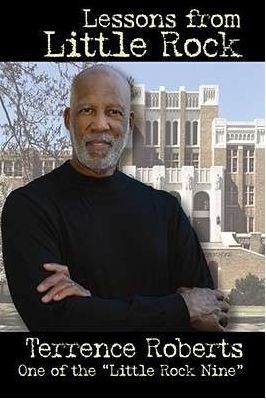|
|
On the day before Hillary Clinton declared her candidacy for President of the United States, April 11, 2015, FindingSources sought out Dr. Terrence Roberts, someone in a unique position to comment on segregation, to speak about his experience and see what he thought about current issues and what we may still learn in the struggle for social justice. In this interview with Palo Alto High School teacher David Rapaport, the two discussed the civil rights era and the state of civil rights now. Rapaport learned something he had never known, which was that Roberts was present when Elizabeth Eckford was challenged by a mob. Roberts' description of the events, therefore, is a first hand account. Despite being a history teacher, to my surprise, I had not read accounts of his presence there. That I was not aware of this came with difficulty because to not be aware of such an important witness and participant in this most visible account of prejudice must mean it has lacked significance in many books with which I am acquainted. Such an important historical fact should not be overlooked and I am really stunned that I had overlooked this. "I think that would be a fine thing," Roberts said when asked if he would agree to an interview, and
suggested that he was available that very day. FInding Sources deeply thanks Terrence Roberts for this interview. David Rapaport & Terrence Roberts Date of Interview - April 11, 2015 Click Attached Link for Audio Interview
A YouTube clip highlights remarks from Terrence Roberts.
|
||||||||||||

